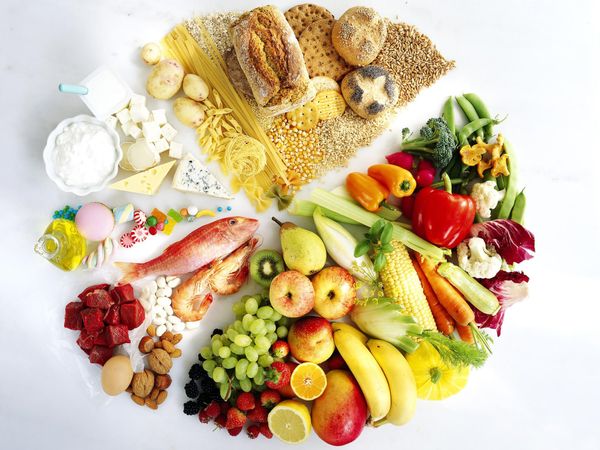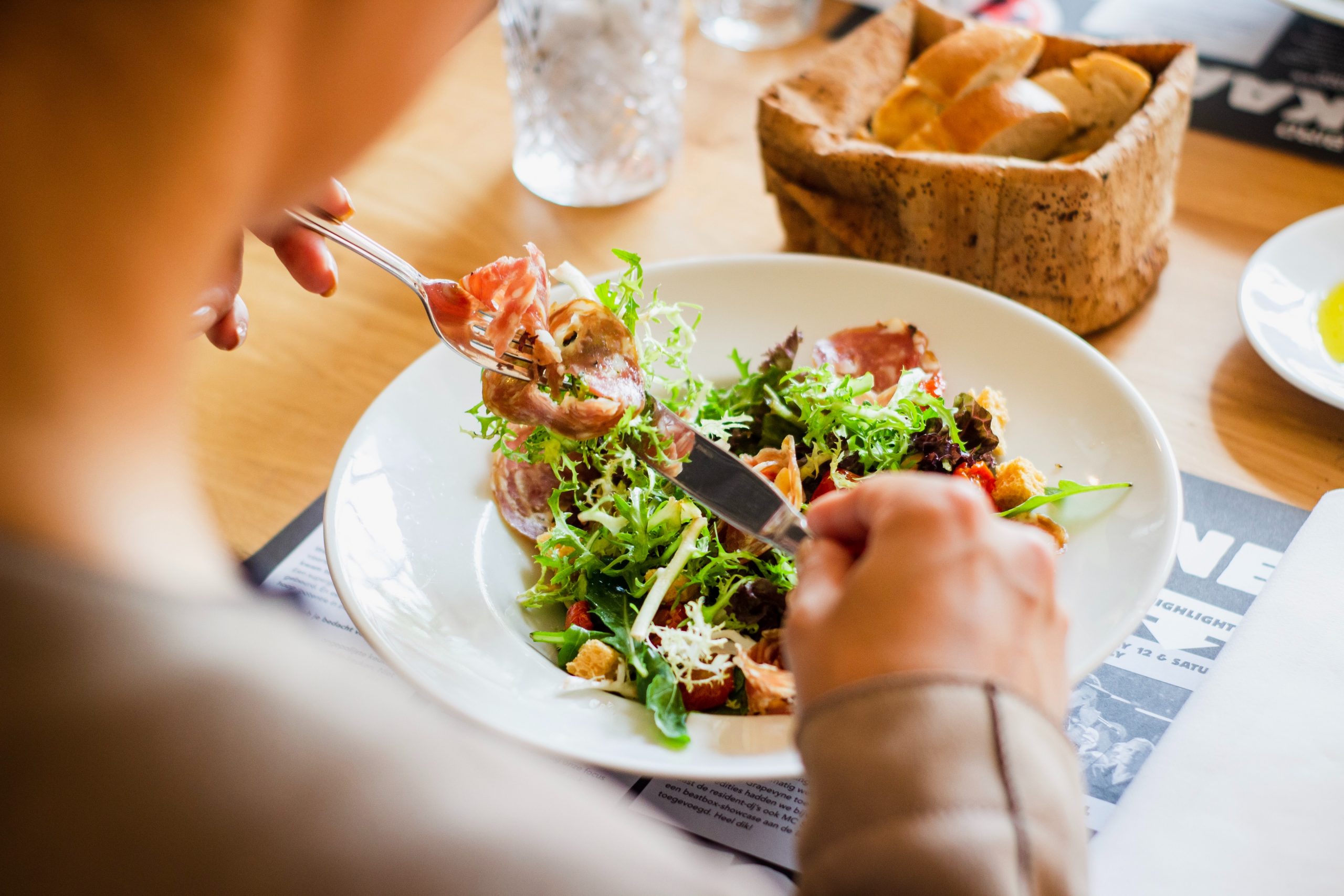“I pooped three times today and feel great!” maybe isn’t something you shout from the mountaintops, but gut health is popping up more and more often in conversation these days. That’s because your gut microbiome (basically all the bacteria that live in your digestive tracts) has been associated with everything from allergies, obesity, and diabetes to irritable bowel syndrome, heart and brain health, and much more.
One way more and more people are trying to improve their gut health is by taking probiotics (that’s the more palatable term for bacteria) and prebiotics (the food bacteria eats). Nearly 3.9 million American adults take probiotic and prebiotic supplements to help improve their gastrointestinal health. And while taking a pill may help, it’s important to remember that supplements should be treated as just that—supplements to a healthy diet.
We’ve compiled some of the top gut-friendly foods to help boost your gut-health game. And be sure to keep reading for the foods that don’t help—and may actually hurt.
Foods That Help Your Gut
When it comes to foods that help promote a healthy gut, we really have two categories: probiotics and prebiotics. That’s one of the reasons fermented foods are so hot right now: Fermentation not only creates a wide range of tangy, funky foods, but it also results in a natural source of probiotics. Prebiotics, on the other hand, are fibers that we don’t digest ourselves, so they are consumed by the good bacteria in our gut. Taken together, prebiotics and probiotics can turn into a healthier, happier gut. Here are the top foods for better gut health.
1. Kimchi
This fermented cabbage Korean staple is rich in two classes of good bacteria associated with better gut health (they’re called Lactobacillus and Bifidobacterium if you want to get technical). Early research suggests fermented kimchi alters the bacterial environment of the gut, potentially reducing the risk of insulin resistance, obesity, and blood pressure. Not a fan of kimchi? Try other fermented foods like sauerkraut, kombucha, or tempeh.
2. Yogurt
Like kimchi, yogurt is a naturally fermented food that can offer some serious probiotic power. Research found that women who ate a probiotic-rich yogurt for four weeks reported better gastrointestinal health, digestive comfort, and an overall improvement in quality of life. While most yogurts contain bacteria, sometimes the strains used aren’t super beneficial or the heat-processing protocols kill off the good stuff. For that reason, you’ll want to look for a yogurt that has at least 1 billion live or active colony-forming units (CFUs) on the label. Sick of yogurt? Try kefir instead.
3. Jerusalem Artichokes
Also known as a sunchoke, the Jerusalem artichoke is a tasty tuber packed full of the prebiotic fiber, inulin. Early research suggests that inulin from the sunchoke increases the good bacteria in the gut, suppresses the bad pathogenic bacteria, and helps promote regularity. But a word to the wise—insulin in excess has been known to cause some serious gas. Hey, there’s a reason these babies are affectionately nicknamed “fart chokes”. We suggest introducing them to your diet slowly in small amounts until your gut adjusts. If you can’t find these nutty-sweet tubers, other great sources of inulin fiber include chicory root, asparagus, dandelion root, onions, and garlic.
4. Garlic
In addition to providing inulin fiber, garlic is also rich in the natural prebiotic fructooligosaccharides (FOS). Early in vitro research has found that garlic increases the good Bifidobacteria in the gut, which may help prevent some gastrointestinal diseases and irregularity. If you want to double down on those FOS fibers, other rich sources include leeks, asparagus, and onions.
5. Green (Unripe) Bananas
Unripe bananas are loaded with prebiotic fiber-resistant starch, which is broken down by gut bacteria to develop those SCFAs (like butyrate) we discussed. Findings from a meta-analysis and systematic review of randomized control trials suggest that supplementing the diet with resistant starch significantly improved bowel movements and the overall function of the gut.
Research suggests you’ll likely want to aim for at least 6 grams of resistant starch per meal to reap the most benefits. So in addition to eating green bananas, you’ll also want to up your root veggies, legumes, and grains. And not just any grains—believe it or not, cooling off your starch (a.k.a. eating leftover cooked rice right from the fridge) can significantly increase the resistant starch content.
6. Barley
Barley is loaded with the prebiotic fiber beta-glucan, which research has found can increase the growth and probiotic benefits of four different good Lactobacillus strains. A randomized control trial also found similar outcomes for the good Bifidobacteria when volunteers supplemented their diets with fiber-rich barley. Not a fan of the grain? Try whole oats to get the same effect.
7. Apples
An apple a day keeps the gastroenterologist away, and that might be largely due to its pectin content. Pectin makes up about 50 percent of the fiber content in an apple and has been shown in exploratory animal research to help increase the total SCFA content in the bowels (a.k.a. bacteria’s favorite food). It also appears to help reduce bad bacteria in the gut, so keep an apple on hand for your daily snack attack.
8. Shirataki Noodles
You know those weird low-cal noodles the keto world is crazy about? Yep, those are surprisingly good for your gut. This faux pasta is made from the konjac root, which is high in a prebiotic fiber called glucomannan. Research has shown glucomannan may help improve the frequency and volume of bowel movements as well as the overall bacterial composition in your gut. One study found that even a small dose of the fiber helped reduce constipation by 30 percent.
9. Cacao
Hey, we’ll take any excuse to double down on the chocolate. Cacao (the unprocessed version of chocolate), is rich in polyphenol flavanols, which, in addition to their heart-healthy properties, also have a prebiotic effect. One study found that consuming a drink rich in cocoa flavanols significantly increased the good Bifidobacteriaand Lactobacilli content of the gut while reducing the bad bacterial counts. To get the biggest flavanol bang for your chocolate buck, make sure you’re choosing cocoa nibs or a good quality dark chocolate with at least 70 to 80 percent cocoa content.
10. Wheat Bran
There’s a reason dietitians insist on eating more whole grains—it’s because they haven’t been stripped of their beneficial bran. Wheat bran contains a unique prebiotic fiber called arabinoxylan oligosaccharides (AXOS), which has been shown to increase the good Bifidobacteria in the gut. Studies have found that in comparison with refined white breads, whole-grain breads rich in AXOS helped improve bowel movement frequency, so make sure you’re looking for the words whole grain on the ingredient list of your morning toast.
Foods That Hurt Your Gut
While getting in lots of probiotics and prebiotics may help you improve your digestive health, avoiding some of these gut-busters may help too.
1. Too Much Booze
We know that too much of the happy juice isn’t a good thing for our health overall, but it turns out it’s really not favoring our guts. Early research looking at alcoholics suggests that chronic alcohol intake is associated with changes in the bacterial microbiome, which may play a role in alcohol-induced tissue injury and liver disease. While we need more research done on a healthy population, it’s probably best to throw ’em back in moderation.
2. Artificial Sweeteners
The health of non-nutritive sweeteners has been a hot topic of debate for years, but with increasing interest in gut health, we may see a clearer story emerge. Rat research dating back to the 1980s had linked the use of artificial sweeteners to shifts in the bacterial populations in the animal microbiome. Follow-up studies have even found an association between the use of artificial sweeteners and glucose intolerance, an outcome affiliated with the shift in gut bacteria. This has led to research on humans that also has noted an association between artificial sweeteners, metabolic outcomes, and changes in our gut microflora. Maybe it’s time to try to cut back on the fake stuff in favor of smaller amounts of real sugar.
3. High Saturated Fat Diet
Despite the popularity of high-fat diets, early research suggests that a diet rich in saturated and trans fat may not be so good for the gut. Studies in both animal and human populations have shown that a diet rich in saturated fat (like from butter or fatty cuts of meat) may increase the “bad” gut bacteria population and decrease the “good” bacteria. In contrast, enjoying more unsaturated fats such as olive oil, avocado, and nuts may help your gut.
4. High Animal Protein Diet
Research has linked animal products, especially red meat, to an unfavorable microbiome. Studies suggest that red meat may reduce the beneficial short-chain fatty acids that help feed the bacterial community, promote the growth of “bad” bacteria, and potentially increase the risk of irritable bowel disease. We believe everything fits in moderation, so you don’t need to quit meat cold turkey (pun intended), but we can all likely benefit from eating less of it.
5. Food Additives
While research in humans is still lacking, early rodent research found an association between common food additives such as polysorbate 80 and carboxymethylcellulose (don’t worry, there won’t be a spelling quiz) and shifts in the microbiome. It also found evidence of intestinal inflammation and an increased risk of irritable bowel disease. What does this mean for humans? At this point, we’re not sure, but considering most food additives are present in high-fat, low-fiber, and heavily processed foods, it’s probably safe to say this type of food isn’t great for the gut.
6. Carrageenan (Possibly)
A common stabilizer found in cheese, ice cream, bread, jam, milk, and lunch meat, carrageenan has gotten a bad rep for its proposed role in gut inflammation. The vast majority of animal studies have found some evidence of intestinal damage with a carrageenan-rich diet, but how applicable this is to humans is another question. And while the early human studies we do have displayed some signs of inflammation in response to carrageenan, it’s important to note that the studies didn’t even take place in the human body and the carrageenan wasn’t added into food, so it’s hard to know how things would fare in the real world.
Not surprisingly, building a better gut comes down to basic nutrition 101: Increase fiber-rich fruits and veggies; reduce refined, processed foods; and go easy on the booze. If you want to take things a step further, consider an at-home microbiome testing kit. While the science is still new, testing your own gut can give you more insight into your individual microbiome and what you should—and should not—be eating.
By Abbie Sharp
Source: greatist.com









Leave A Comment
You must be logged in to post a comment.